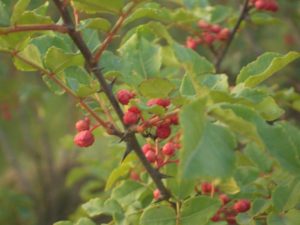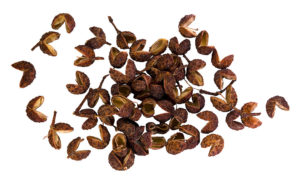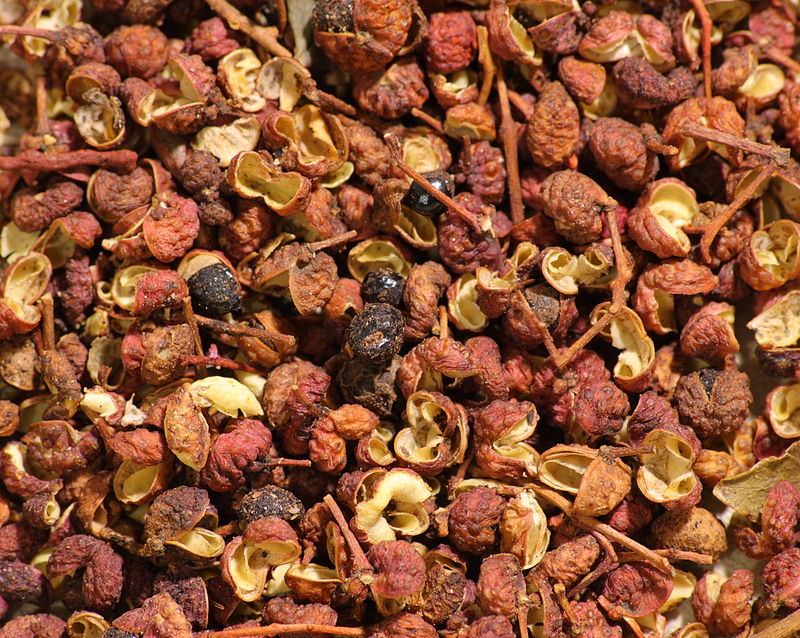The pepper called for in the classic Chinese Five Spice Powder is neither the familiar black pepper (Piper nigrum) nor chili pepper (Capsicum annuum). Rather, it is the Sichuan pepper, also known as the Szechuan pepper, (Zanthoxylum simulans) that is native to China and used in many Southeast Asian cuisines. It is a member of the citrus family which is reflected in the flavor which is citrus-y rather than hot. It has a numbing effect in the mouth so it is best to never use too much. A little bit goes a long way.
Sichuan pepper is also used in traditional Chinese medicine to treat stomach and digestive problems.

Sichuan Pepper Bush with Thorns and Berries
Another nickname for the tree is Chinese Prickly Ash because it is covered with thorns and its leaves resemble those of the ash tree. Sichuan pepper is a large bush/small tree that is hardy through zone 5. It reaches a height of 5 to 8 feet so it is suitable for container growing with a little pruning. It prefers full sun but will tolerate a little shade. Like most herbs, it needs well-drained soil
Bloomtime is in the spring. The flowers grow in florets and resemble elderberry flowers. The berries that follow hang down and ripen into a bright red. If you are growing from seed or from a seedling from a nursery, expect to wait 2 to 3 years for your plant to produce flowers and berries.

Sichuan Pepper Pericarps
Surprisingly it’s not the berries that you use for seasoning. The berries have no use and are usually discarded. It’s the covering or pericarp that surrounds the seed that is used in both cooking and medicine. It is used both whole and as finely ground powder. The pericarp is roasted before use.
In the case of Sichuan Pepper Oil, the whole berry including the pericarp is used. Canola oil is heated and the peppercorns added to infuse the flavor into the oil. Some recipes call for additional ingredients such as chili peppers and ginger.
Keep your shrubs well-mulched and away from other citrus plants. They can carry a citrus canker that can be passed to other citrus trees and injure the leaves and fruit. Sichuan peppercorns were banned from the US from 1968 to 2005 to protect the citrus crop from this contagious bacterial disease. The ban was lifted with the caveat that the peppercorns be heated to 140⁰F for ten minutes or longer to kill the bacteria.

